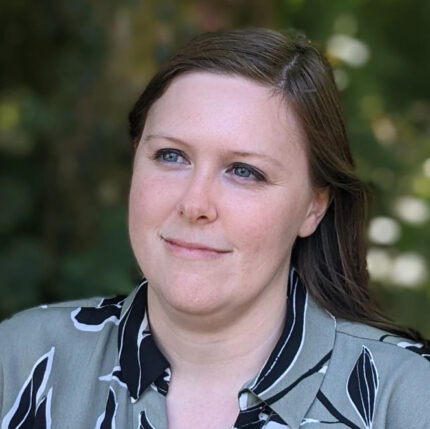In the last five years there has been a rallying cry in the sector about the need to co-produce with students, and for universities to more directly meet the civic needs of our university towns and cities.
The One Community Forum is a starting point for establishing and developing the deep relationships needed in our communities to truly tackle social change, and improve the student experience.
One of the main findings of the research of the UPP Foundation’s Student Futures Commission and wider consultation about the impact of the pandemic on students was a lack of confidence and empowerment which students had in their abilities, both academic, social and in their skills. If we want to create graduates who are able to make change in roles which have national or global influence, we must first start with what change can look like on a local level, and how they can influence the world immediately around them.
Many students care deeply about the social issues which impact our towns and cities, issues like climate change, homelessness, food insecurity or educational disadvantage. But many students struggle with where to channel their energies and how to start in this journey to tackle these complex issues. When universities provide sufficient resources, support and scaffolding for civic engagement activities, whether that’s through in-curricular, extracurricular or voluntary activity, both students and communities benefit.
In a landscape in which student loneliness and mental health concerns are high, and the cost of living crisis is forcing students to ask difficult questions about the value of university, institutions need to work hard to support students to find meaning in their experiences. This includes through their academic courses, in their choices about how to spend their time, and in the value of their skills and experiences for their graduate careers. One answer for how to support students and scaffold their journey to find meaning amongst their university experience lies in the local experiences we can curate for students, through place-based student volunteering and civic action.
From a community perspective, it opens the door for broader partnerships and deeper relationship building, with many community organisations unsure how to navigate the landscape of their local university to secure the support they need, or unaware of the benefits which their university can provide them with, such as free capacity, knowledge exchange and direct student engagement.
Introducing One Community Forums
Today, the UPP Foundation and Student Hubs are jointly launching a new toolkit to help universities and their students’ unions to design and deliver their own One Community Forum. The One Community Forum pilot enabled students and community groups to come together to decide the purpose and focus of student volunteering in their city. During the most recent Forum, this led to over 370 students taking part in the pilot programme across five participating universities, with over 1,500 young people being positively impacted by initiatives to tackle youth inequality.
Activities included a laptop donation campaign to tackle digital exclusion; student projects supporting local food bank charities; tutoring activities reaching 900 young people; and mentoring programmes to support young people’s motivations and expectations for future life.
The aim of the toolkit is to encourage a collaborative approach in tackling social issues which local communities face. Students and community organisations are key partners in this mission for universities, and the One Community Forum model enables universities and their civic partners to explore local challenges, understand barriers, and plan how students can be active in positively improving their university towns and cities. It also enables universities to revitalise their volunteering offer, supporting students to become active citizens in their communities while building on their employability skills and experiences which are key to graduate outcomes.
It is not enough for universities to decide what it means to be good to their communities, communities need to be able to share the same space and have conversations with their universities where they can set the direction of transformation based on legitimate social issues and challenges which impact that community. This is what it means for a university to be an anchor institution: to listen, to understand, and to use their tools and resources to address what they have heard.
In the face of what can sometimes feel like overwhelming challenges, focusing on what we can achieve in our local communities is a much more tangible prospect for students, communities and universities acting in real partnership to tackle the issues that matter most to them. Being place-based means enabling all parties to work collaboratively, to be part of the solution and to make real change on a local level. It should be universities driving this change, and the One Community Forum Toolkit can provide a means to start the research and conversations which need to happen to begin this essential journey.
Join the One Community Forum Toolkit launch in partnership with the Civic University Network, UPP Foundation and Student Hubs on Tuesday 26 September, 3.00-4.00pm. Sign up for your free ticket here.












